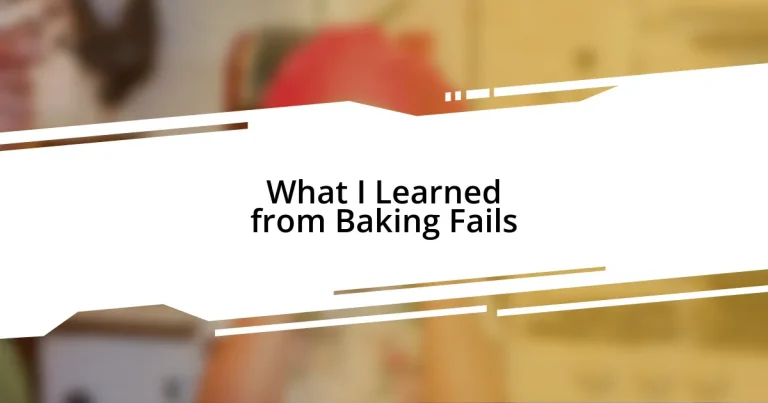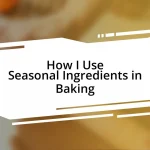Key takeaways:
- Baking failures provide valuable lessons and enhance understanding of baking techniques and ingredient interactions.
- Common mistakes include using expired ingredients, misjudging oven temperatures, and inaccurate measuring, all of which can significantly impact results.
- Keeping a baking journal and using a kitchen scale can help avoid errors and ensure consistency in recipes.
- Failures can lead to unexpected successes and foster resilience and creativity in baking.
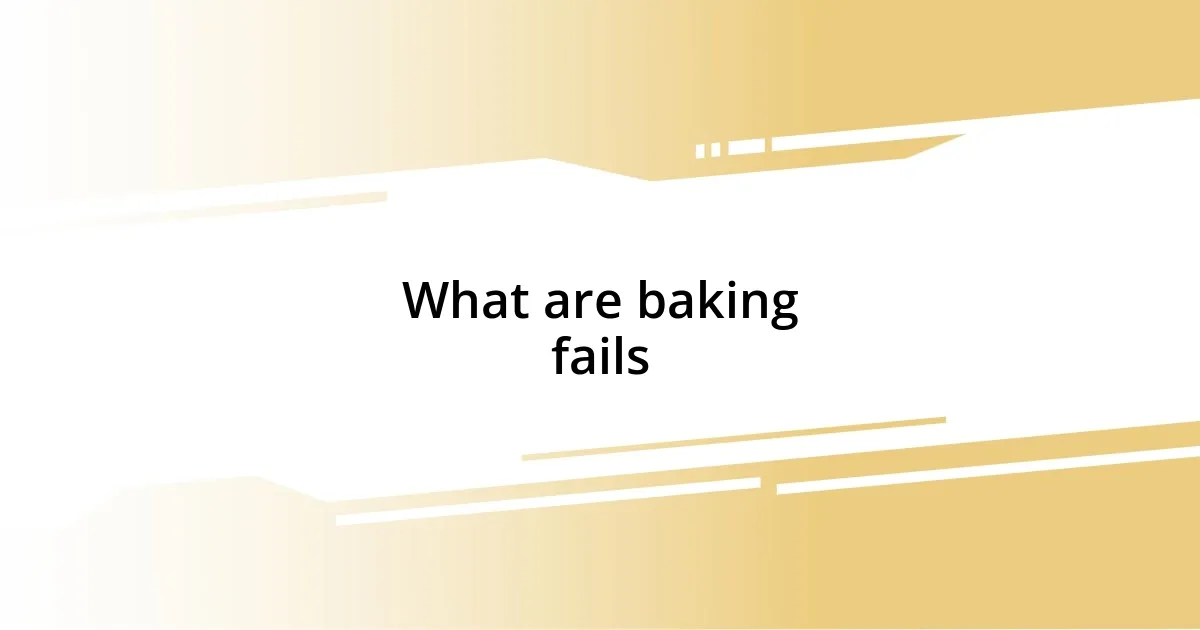
What are baking fails
Baking fails are those moments when our carefully crafted recipes go terribly wrong, and they can feel pretty disheartening. I remember a time when I miscalculated the amount of baking soda, resulting in a cake that looked more like a science experiment gone awry than a birthday dessert. Have you ever cut into a loaf of bread only to find dense, gummy insides? It’s a letdown that makes you question every step you took in the process.
These failures often stem from a mix of human error and unexpected variables like oven temperatures or ingredient substitutions. A few months ago, I walked away for just a minute too long while my cookies baked, and I returned to find them transformed into crispy discs. It’s moments like these that really test our patience and passion for baking.
But what’s interesting is that each fail teaches us something invaluable about the craft. When my soufflé collapsed, it sparked a curiosity in me to learn more about the science of ingredients and how they interact. Isn’t it fascinating how a small mistake can lead to a greater understanding of baking?
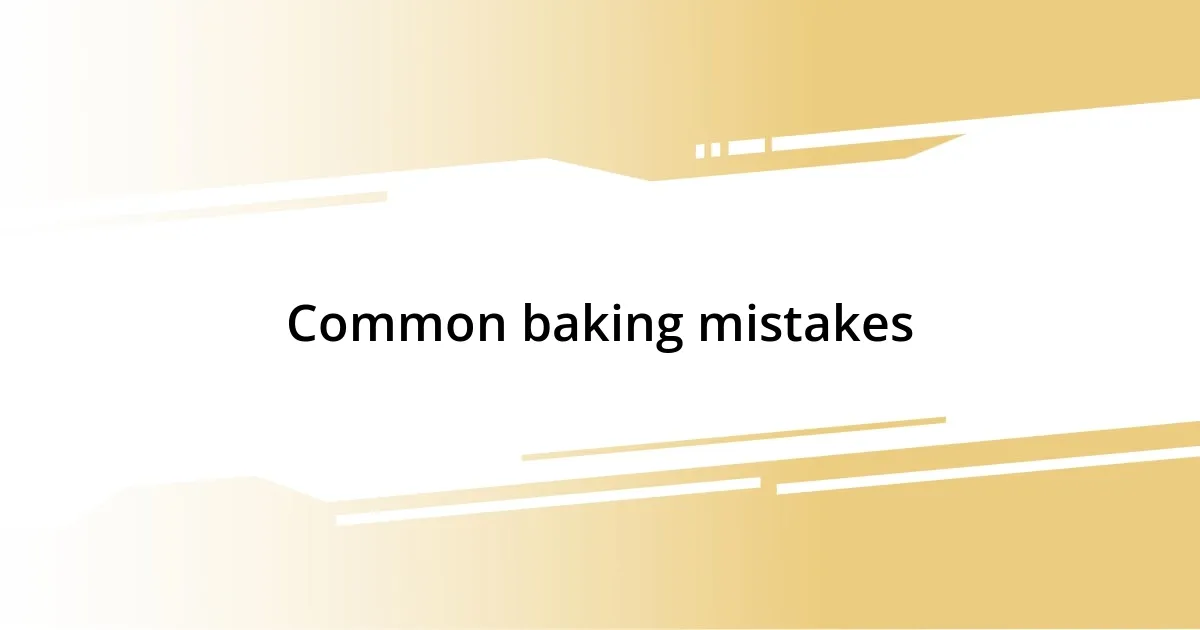
Common baking mistakes
When I first started baking, I often forgot to check the freshness of my ingredients. This may seem subtle, but using expired baking powder can result in flat cakes that leave you scratching your head. It’s like hunting for treasure only to discover you dug in the wrong spot; the excitement turns to disappointment.
Another mistake that I’ve made involves misjudging oven temperatures. I once cranked up the heat, hoping to speed things up, but ended up with burnt edges and raw centers in my brownies. It was frustrating, but it reminded me that patience is just as important as the actual baking process.
A classic blunder is not measuring ingredients accurately. I once scooped flour straight from the bag, thinking I knew the right amount, and ended up with a bread dough that was too sticky to work with. This taught me the importance of precision in baking, which is often the thin line between success and failure.
| Common Baking Mistakes | Impact |
|---|---|
| Using expired ingredients | Flat, unrisen baked goods |
| Misjudging oven temperature | Burnt or undercooked items |
| Inaccurate measuring | Sticky or dry dough |
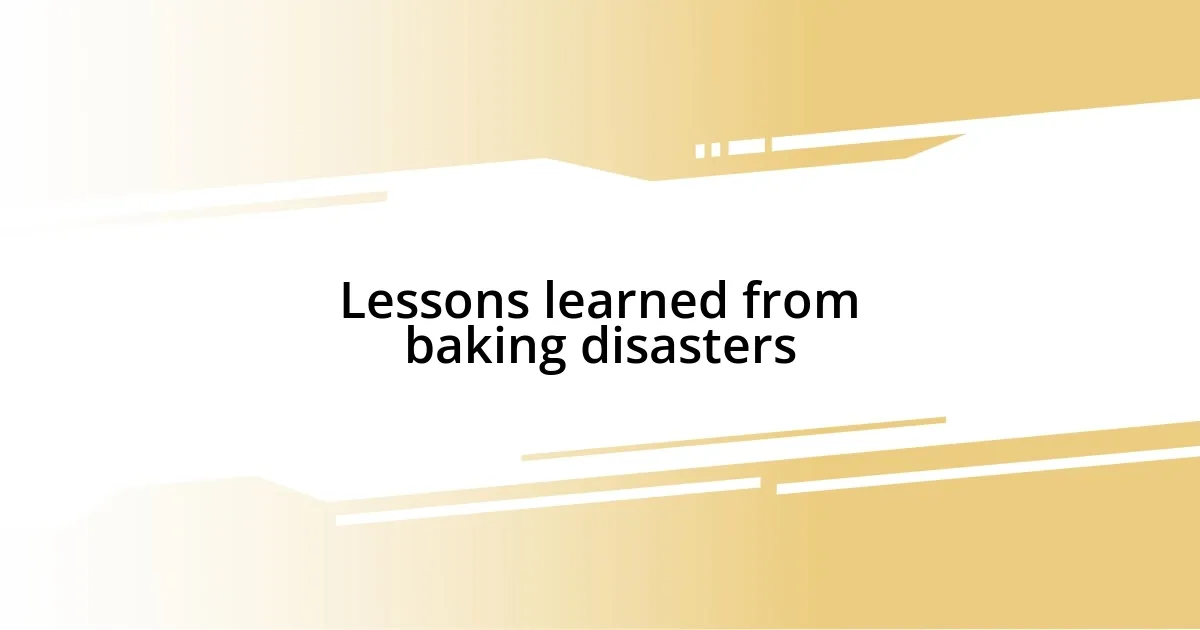
Lessons learned from baking disasters
There’s something strangely humbling about a baking disaster. I recall a time when I attempted to make macarons, those delicate French cookies. My first batch turned into a sticky puddle; it felt like the universe was laughing at me. But that experience taught me the importance of following specific techniques, like the right mixing method and resting times. I learned that precision matters more than I’d ever realized in baking.
From my journey through these mishaps, I’ve gathered a few essential lessons:
- Experimentation is key: Sometimes, a disastrous outcome can lead you to discover new flavors or textures.
- Mindset matters: It’s crucial to approach baking with a positive attitude, viewing failures as stepping stones rather than setbacks.
- Understand your ingredients: A deeper knowledge of how various elements interact can help prevent future chaos.
- Trust your instincts: Developing a sense of what looks and feels right in the dough can save you from disaster.
- Learn from the mess: Embrace every fail as a valuable lesson and an opportunity to improve your skills.
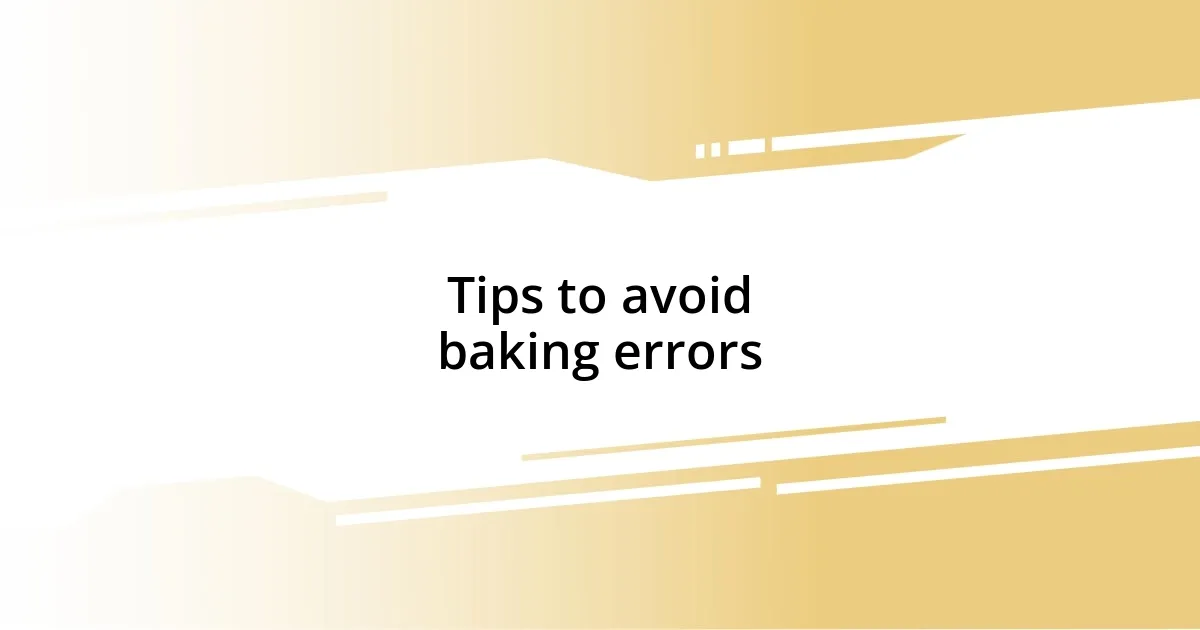
Tips to avoid baking errors
When I started baking, one of my most helpful moves was investing in a reliable kitchen scale. The difference it made was astounding! Instead of eyeballing flour and sugar, I now weigh them out, ensuring my ratios are spot on every time. Have you ever poured too much of an ingredient in? It throws everything off balance, doesn’t it?
Another practical tip I’ve picked up is to keep a baking journal. Sounds a bit extra, right? But trust me, jotting down what I did each time—like the exact oven temperature or the type of flour—has saved me from repeating mistakes. I can’t tell you how many recipes I’ve adjusted based on what worked and what didn’t; my journal is a treasure trove of insights that I can always refer back to.
Lastly, always preheat your oven! I know it seems straightforward, but I once tossed a cake in while it was still cold, thinking I could skip that step. The result was a dense, soggy mess. Whenever I take that extra time to let my oven warm up, I can feel the difference in my baking. It’s a small step, but oh boy, does it make a huge impact!
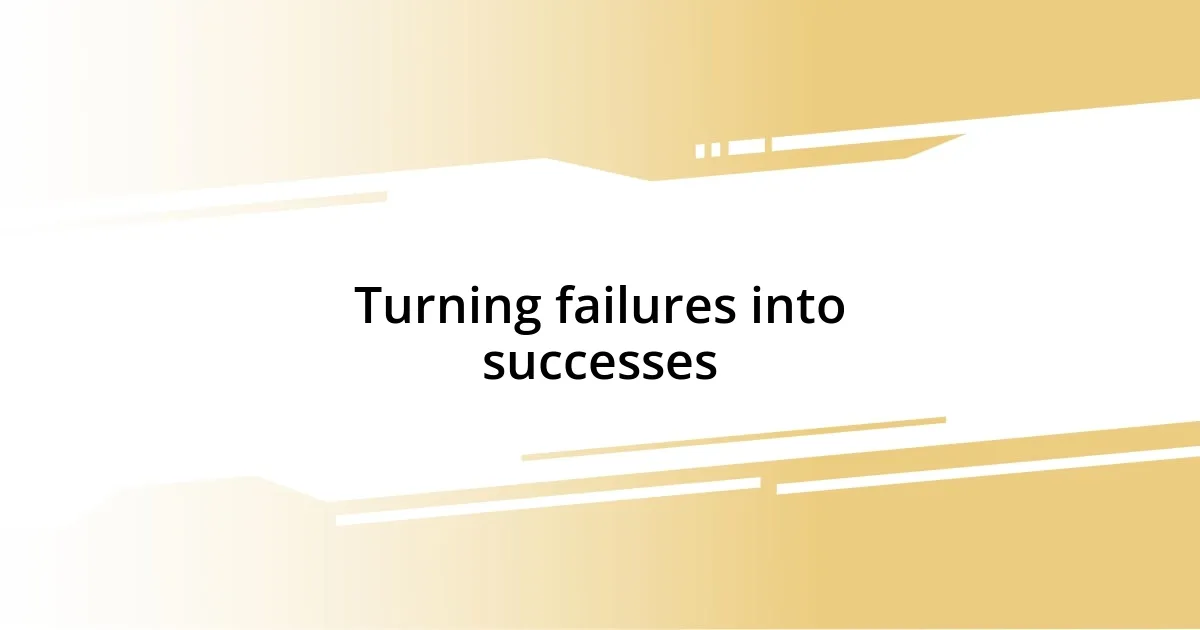
Turning failures into successes
Facing a baking fail can be deflating, but I’ve learned that it’s often the precursor to unexpected successes. For instance, after a loaf of bread collapsed on itself, I decided to experiment with a new flour blend rather than sulk. Guess what? That trial led to the creation of a wonderfully nutty bread that became a family favorite. Have you ever stumbled upon something magical in the kitchen when you least expected it?
When I reflect on these disasters, I realize that each one carries a lesson, often cloaked in frustration. I once mixed up baking soda with baking powder—an honest mistake. The resulting cookies were, well, interesting. Yet, that experience solidified my understanding of the distinct roles these ingredients play. Now, I double-check every time. That little attention to detail can transform potential chaos into culinary delight.
The emotional ride of baking fails can feel daunting, but I’ve come to embrace the journey. Overcoming a failed soufflé taught me resilience; each attempt built my confidence. It’s fascinating how failure can spark growth and creativity. Isn’t it reassuring to know that each misstep can lead to a richer baking experience? The kitchen, much like life, can be unpredictable, and sometimes, that’s where the real magic happens.












